5 Essential Medical Reads for the Busy Physician
M3 Global Newsdesk Oct 28, 2023
Explore the medical world through essential reads, from pioneering female physician Rebecca Crumpler to poignant reflections on mortality, the history of medical experimentation, a shocking tale of Dr. Max Jacobson's influence, & an anaesthesiologist's perspective.
If you’re like most physicians, you put in plenty of time reading various journals, books, and other materials so you can keep current in your field. Are you taking some time to relax and recharge? There’s no better way to check both of those boxes than to crack open a good book.
From a wide range of authors and a broad set of topics, here are five must-read books for any clinician.
1. A Book of Medical Discourses: In Two Parts, by Rebecca Crumpler
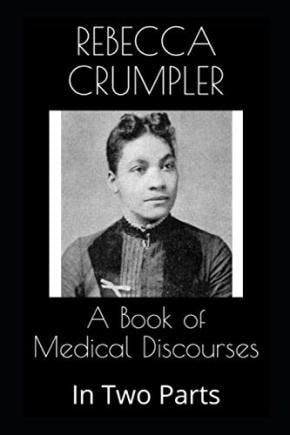
Rebecca Lee Crumpler became the first female physician in the United States when she graduated from the New England Female Medical College in 1864—but it took 125 years after her death in 1895 before she was recognised for her achievements and contributions to the medical field. Despite her pioneering accomplishments, she was buried in an unmarked grave until she finally received proper recognition in 2020 through a granite gravestone identifying her as “The first woman to earn a medical degree in the US–1864.”
Following the Civil War, Crumpler worked for the medical division of the US Bureau of Refugees (also called the Freedmen’s Bureau at the time), an agency set up to provide services to recently emancipated slaves, a population that most physicians refused to treat. Crumpler herself faced similar adversities throughout her life, struggling to find pharmacists to fill prescriptions, and she was often ignored or ridiculed by hospital administrators and fellow doctors.
But Crumpler persevered. After moving back to Boston in 1869, she set up a home where she treated those who couldn’t afford to go to other clinics. Her patients were mostly women and children, and she wrote extensively about her experiences and learnings during this time.
The result, A Book of Medical Discourses: In Two Parts, was published in 1883, and is considered to be a significant precursor to What to Expect When You’re Expecting (1984). An 1894 article in The Boston Globe described the book as “valuable,” and Crumpler’s focus on disease prevention, nutrition, and attaining financial stability are all factors that are as relevant today as they were a century ago.
2. When Breath Becomes Air, by Paul Kalanithi
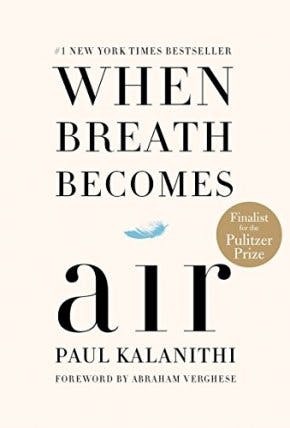
Paul Kalanithi was 36 years old and on the cusp of finishing a decade’s worth of training as a neurosurgeon when he was diagnosed with stage 4 lung cancer. In his book, When Breath Becomes Air, he writes that as a student, he was “possessed by the question of what, given that all organisms die, makes a virtuous and meaningful life.” All of a sudden, he found himself as a new father, grappling with his own mortality and the loss of the future he had imagined with his wife. Kalanithi passed away in March 2015 while working on the book, which went on to become a New York Times Bestseller and a Pulitzer Prize finalist. When Breath Becomes Air is a moving memoir that finds hope in the darkness and explores the profundity of facing death and the relationship between doctors and patients.
3. Medical Apartheid, by Harriet A. Washington
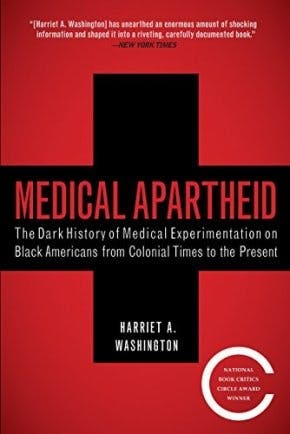
Medical Apartheid: The Dark History of Medical Experimentation on Americans from Colonial Times to the Present, written by Harriet A. Washington, is described as “The first full history of America’s shocking mistreatment as unwilling and unwitting experimental subjects at the hands of the medical establishment.” Washington is an award-winning author and medical ethicist whose accomplishments are many: She’s been a fellow in ethics at the Harvard Medical School, a fellow at the Harvard School of Public Health, a Knight Fellow at Stanford University, and a journalist and editor at various publications including The New England Journal of Medicine, to name just a few achievements.
Medical Apartheid covers hundreds of years of pseudoscience, from the era of slavery to the present day. Washington details how both slaves and freedmen were used in hospitals for experiments conducted without their knowledge, and the extent to which such abuse continues today, with lesser-known medical atrocities conducted among some populations by the government, the military, prisons, and private institutions. The book reveals the dark side of American scientific research, providing a context for the African-American health deficit and the deep mistrust between Americans and the medical establishment.
4. Dr. Feelgood, by Richard A. Lertzman, William J. Birnes
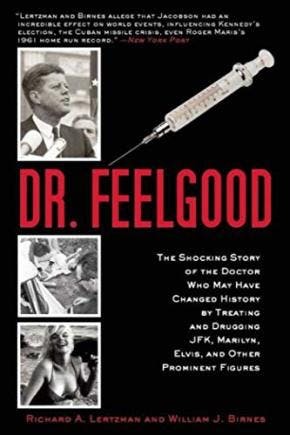
Just before his first debate with Vice President Richard Nixon, then-presidential candidate John F. Kennedy received a shot of Dr. Max Jacobson’s “energy formula.” The shot not only cleared up JFK’s laryngitis, but it alleviated the pain in his back and gave him a jolt of energy, allowing him to dominate Nixon in the debate and wow the crowd with his charisma. What he didn’t realise is that Dr. Jacobson’s formula was a powerful dose of highly addictive liquid methamphetamine and steroids.
Lertzman and Birnes’ book, Dr Feelgood: The Shocking Story of the Doctor Who May Have Changed History by Treating and Drugging JFK, Marilyn, Elvis, and Other Prominent Figures, chronicles the work of Dr Jacobson, whom the Secret Service nicknamed “Dr Feelgood,” and who influenced the lives of a range of iconic figures, from Elvis Presley to Frank Sinatra. Via comprehensive research and interviews with the likes of George Clooney and Jerry Lewis, the authors show how the doctor destroyed the lives of many famous patients, accidentally killed his own wife with an overdose of his formula, and left his fingerprints on events like the Cuban Missile Crisis, the Kennedy-Khrushchev Vienna Summit, and the murder of Marilyn Monroe.
5. Counting Backwards: A Doctor's Notes on Anaesthesia, by Henry Jay Przybylo, MD
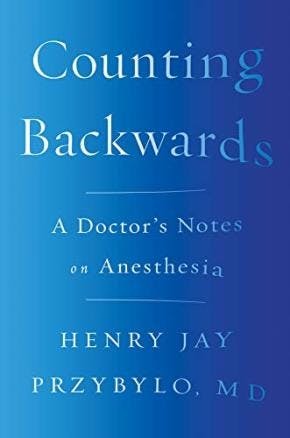
Some 40 million Americans are put under anaesthesia every year, an experience that’s shrouded in mystery and intrigue. In his book Counting Backwards, Henry Jay Przybylo, MD, answers all of your questions about the process and more. Dr. Przybylo, an associate professor of anaesthesiology at Northwestern University School of Medicine, has administered anaesthesia more than 30,000 times during his 3-decades-long career and he’s had every kind of patient you can imagine: from newborn babies to aloof teenagers—even, in one instance, a gorilla. Counting Backwards dives right into the medical trenches with stories of near-disasters and lives saved. Fellow author Danielle Ofri, MD called it, “An engaging and illuminating exploration of the invisible medical speciality” which “pulls back the veil on the very act of being alive.”
Disclaimer: This story is contributed by Alistair Gardiner and is a part of our Global Content Initiative, where we feature selected stories from our Global network which we believe would be most useful and informative to our doctor members.
-
Exclusive Write-ups & Webinars by KOLs
-
Daily Quiz by specialty
-
Paid Market Research Surveys
-
Case discussions, News & Journals' summaries